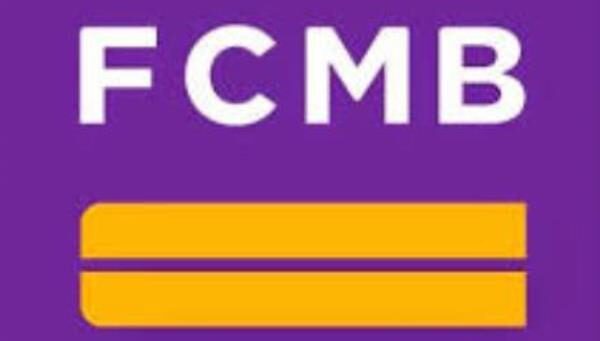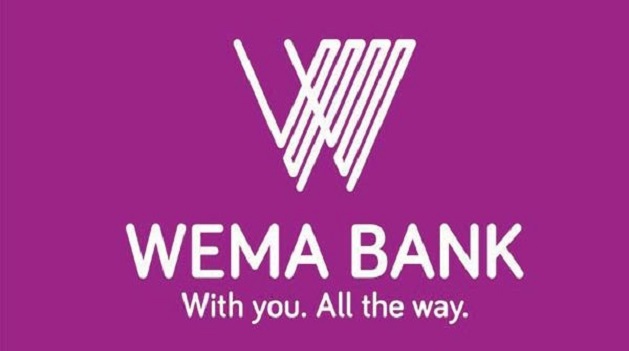E-Financial
FCMB to Empower Women in Renewable Energy, Others with AfDB’s $50m Credit Facility

First City Monument Bank (FCMB) has said that women and local enterprises involved in agribusiness, manufacturing, health care, and renewable energy will soon have access to long-term funding courtesy of a $50 million credit facility from the African Development Bank (AfDB).

The bank said the $50 million credit line will narrow the lending gap to underserved segments and complement its lending efforts and operations in the Nigerian market.
AfDB, it added, will disburse the funds to the bank before the end of this year.
Mrs. Yemisi Edun, Managing Director, FCMB, thanked the African Development Bank for having confidence in the bank, adding that the credit line would help it increase lending to high impact sectors of the Nigerian economy.
She said, “The $50 million credit line will increase access to finance for women empowered businesses and enterprises involved in agribusiness, manufacturing, renewable energy and healthcare, enabling them to build back better post-COVID-19.
“We are delighted that a minimum of 30 per cent of the funds will go specifically to women empowered businesses, which would, in turn, contribute to stimulating gender equality and empowerment.
“Remarkably, it aligns with FCMB’s transformative agenda of boosting household economic resilience by improving women’s access to credit and work opportunities.”
She added, “In addition to the $50 million, the AfDB will provide a technical assistance grant of $200,000 to FCMB through its Affirmative Finance Action for Women in Africa (AFAWA). The Women Entrepreneurship Finance Initiative, an international partnership supporting women entrepreneurs in developing countries, supports AFAWA. The assistance grant complements the loan and will further strengthen training, monitoring and reporting by the bank.”
In a statement, Mr. Stefan Nalletamby, AfDB’s Director of Financial Sector Development, said: “We are pleased to support FCMB’s strategy to become a dominant player in addressing the funding needs of women-empowered and local enterprises. This project will extend valuable resources to critical but underserved segments during the ongoing COVID-19 pandemic, with its adverse macroeconomic impact.”
AfDB added that the project also advances its ten-year strategy and is consistent with three of its high-five strategic priorities. “These are industrialise Africa, Feed Africa, and improve the quality of life for the people of Africa. This also aligns with the Nigeria Country Strategy Paper 2020-2024,” he said.
Recently, FCMB secured a $10 million facility from Oikocredit, a major global social impact investor and co-operative institution based in The Netherlands, to upscale its impressive financial support to SMEs and the agribusiness sectors in Nigeria.
E-Financial
NIMC, NIBSS, Others Roll out Digital Cards with Multiple Wallets

National Identity Management Commission (NIMC), Nigeria Interbank Settlement Systems (NIBSS), AfriGO and other stakeholders are set to roll out digital cards with multiple wallets to drive financial inclusion and improve Nigeria’s Gross Domestic Product (GDP).

The digital cards with multiple wallets would allow Nigerians to have access to government services in all Ministries, Departments and Agencies (MDAs) of government, while it would also provide platforms for students to access government loans.
Already, Nigerian farmers captured under the Federal Ministry of Agriculture and Food Security, (FMAFS) have embraced the digital cards for government services in areas of provision of agric loans, seedlings and other inputs that would improve food production and security.
According to Abisoye Coker-Odusote, director general/chief executive officer, NIMC, the biometric NIMC-enabled cards have multiple features to address the socio-economic needs of Nigerians in line with the 8 point Agenda of President Bola Tinubu.
Coker-Odusote, who addressed newsmen at the headquarters of NIMC in Abuja on plans regarding the launch of the cards, was flanked by Mr Premier Oiwoh, managing director/CEO, NIBSS; Mrs Ebehije Momoh, managing director/CEO of AfriGO; and Mr Femi Akande, managing director, Data Mining Company.
She said the stakeholders were brought together to explain the different benefits associated with the digital cards to Nigerians and the general impact it would have on the economy as President Tinubu hoped to drive his welfare programmes using digital identity verification as a major platform.
The NIMC boss said the multiple purpose cards would be available to citizens, home and abroad and legitimate residents who could use the cards for various transactions, especially payments of water and electricity bills, transportation services, and shopping, among others.
The cards, she explained, could be used off line and online to provide services for unbanked citizens in rural areas and bring on board those whose businesses required government support for survival, noting that with such opportunities, Nigerians would need no god father to access government services and support.
Coker-Odusote said the digital cards which come with various security features cannot be forged as the biometric information of owners are embedded in them, emphasising that they were made to address current needs of government to ensure that there are no ghost beneficiaries of government palliatives, loans and other benefits.
She assured that the cards would turn around the economy by improving revenue generation and the country’s GDP as states governments and the private sectors would be part and parcel of it.
Speaking on behalf of other stakeholders, Momoh of AfriGO, said the launch of the cards would change the narratives for the country’s economy as it would ensure that the flow of money remained within the economy.
Momoh said: “The digital card is a domestic solution to drive financial inclusion and provide cost effectiveness and transparency within the systems. It would ensure data sovereignty and autonomy, and we all know that data is significant to improve our economy.
“This card will help reduce cost, especially dollar given to banks. Domestic payments are important to support welfare and social interventions services of government, so it will help drive cashless policy and ensure that our monies remain within the economy.
“We have about 26 banks already issuing the cards and it is hoped that more would come on board. Nigeria is the first country to come up with this innovation, and surely it would enhance micro-medium enterprises across the country.”
E-Financial
Wema Bank Targets N200bn in Final Tranche of Capital Raise

Wema Bank has announced plans to conclude its capital-raising efforts with a robust strategy combining a Rights Issue and a Special Placement exercise, both scheduled to commence on April 1, 2025.

The initiative aims to secure N200 billion in fresh capital, marking a significant milestone in the bank’s growth journey.
This marks the second and final tranche of Wema Bank’s comprehensive capital-raising exercise, following the successful first tranche, which generated N40 billion.
By securing this additional capital, the bank is poised to exceed the Central Bank of Nigeria’s (CBN) minimum capital requirement for national banking authorization, thereby solidifying its financial strength and positioning for sustained growth.
The move underscores Wema Bank’s commitment to maintaining robust financial health while enhancing its ability to deliver innovative banking solutions.
In its usual manner as a proactive, innovative and forward-thinking bank, Wema Bank, had prior to the CBN announcement, already launched a N40 billion rights issue as far back as December 2023, receiving the approval of the CBN and the Securities and Exchange Commission (SEC) in 2024.
This resulted in the Bank’s successful completion of the first tranche of its capital raise exercise. With over 30% of the CBN target of N200 billion already met, Wema Bank is proceeding to initiate the second tranche of capital raise come April 2025, this time, with the goal of raising N200 billion in fresh capital to complete its capital requirement.
Confident in the outcome of the upcoming rights issue, Wema Bank’s Managing Director and Chief Executive Officer, Moruf Oseni, assured shareholders and other stakeholders of a successful conclusion of the capital raise program.
According to him, “We stand strong today not just as Nigeria’s oldest indigenous bank but also as Nigeria’s leading innovative bank. Wema Bank turns 80 this year and I can safely tell you that we have never been more driven to excel.
I am blessed to lead with the support of a team of determined and driven professionals who will leave no stone unturned in achieving our strategic aspirations. Indeed, we are building Wema Bank into a formidable force in the African financial services landscape”.
“We remain dedicated to maintaining transparency throughout this process and will provide regular updates to all stakeholders and shareholders as we go forward. This capital raise will be a win-win for us all. You can trust as always that your investment in Wema Bank will produce exceeding returns. This is our promise to you”, Oseni concluded.
With the deadline for CBN’s recapitalisation exercise set for March 31, 2026, this move by Wema Bank will undoubtedly ensure the bank retains its national banking license way ahead of the deadline
Reaffirming its stance as a Bank committed to transparency and adherence to regulatory standards, Wema Bank is working to secure all necessary approvals from relevant regulatory authorities to ensure the process is conducted in full compliance with applicable guidelines.
E-Financial
CBN Governor Olayemi Cardoso Forecasts Economic Growth and Lower Inflation in 2025

Olayemi Cardoso, Central Bank Governor, announced on January 23 that Nigeria’s Gross Domestic Product (GDP) is projected to grow by 4.17 percent, while inflation is expected to ease in 2025.

Currently, Nigeria’s inflation stands at 34.80 percent, but Cardoso is optimistic that it will decline as President Bola Tinubu’s reforms take effect.
Cardoso also mentioned that foreign exchange reserves have risen gradually, driven by increased oil production. Oil output is forecast to reach 2.3 million barrels per day by mid-year.
He pledged to increase Nigeria’s foreign exchange reserves to over $40 billion after recording a $6 billion FX inflow in 2024.
The central bank’s priority remains maintaining price stability and bolstering market confidence. Cardoso emphasized the importance of enhancing transparency and efficiency within the foreign exchange market, expecting more appetite for real sector development with limited opportunities for FX arbitrage.

 Telecom2 days ago
Telecom2 days agoSamsung Galaxy S25 Series: Redefining Smartphones with Advanced AI Integration

 News2 days ago
News2 days agoSocial Impact Champions Call for Business Investment in African Women and Girls

 Telecom2 days ago
Telecom2 days agoFG, WIOCC Sign $10M MoU to Connect 3 million Homes with Broadband Fibre Connectivity

 Telecom2 days ago
Telecom2 days agoNLC Announces Nationwide Boycott over Telecom Hike

 Telecom2 days ago
Telecom2 days agoMainOne Boosts Connectivity for West African Businesses with Equiano Cable

 Telecom2 days ago
Telecom2 days agoAll the Android updates coming to the Samsung Galaxy S25 series and more

 Broadcasting2 days ago
Broadcasting2 days agoNCC, NBTE to formulate IP Policy for Polytechnics, Technical Institutions

 Telecom2 days ago
Telecom2 days agoMTN’s New Year Campaign: Inspiring Change, One Move at a Time






















